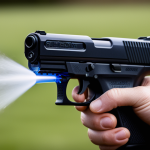Peak Performance Fuel: Expert Carbohydrate Loading Tips for UK Fighters Pre-Tournament Day
Understanding the Importance of Carbohydrate Loading
When it comes to preparing for a high-intensity event, such as a martial arts tournament, understanding how to fuel your body is crucial. For UK fighters, carbohydrate loading is a strategic approach to maximize performance by optimizing glycogen stores. Here’s why it’s so important:
Carbohydrates are the primary source of energy for high-intensity, short-duration activities like many combat sports. Glycogen, the stored form of carbohydrates in the muscles and liver, is depleted rapidly during intense exercise. By loading up on carbohydrates, fighters can increase their muscle glycogen stores, delaying the onset of fatigue and enhancing overall performance.
Have you seen this : Essential Kumite Drills for UK Karate Enthusiasts: Master Your Performance!
Preparing for Carb Loading
Before diving into the specifics of carbohydrate loading, it’s essential to understand the context and timing.
Timing is Everything
Carb loading should typically begin 1-3 days before the event. This allows enough time for the body to store the carbohydrates as glycogen without causing digestive discomfort during the competition.
Additional reading : Unlock Peak Focus: Essential Techniques for Mental Sharpness in Extensive UK Karate Competitions
Assessing Current Diet
A complete nutritional assessment is necessary to determine if any adjustments are needed. Fighters should ensure their habitual diet is balanced and meets their energy needs. For example, a diet rich in complex carbohydrates such as whole grains, fruits, and vegetables can help maintain optimal glycogen levels[1].
How to Carb Load Effectively
Carb loading is not just about consuming large amounts of carbohydrates; it’s about doing it strategically.
Step-by-Step Guide to Carb Loading
-
Day 1-2 Before the Event:
-
Increase carbohydrate intake to 8-10 grams per kilogram of body weight. For a 70 kg fighter, this would be 560-700 grams of carbohydrates.
-
Focus on complex carbohydrates like whole grains, pasta, and vegetables.
-
Reduce protein and fat intake to minimize digestive load.
-
Day of the Event:
-
Maintain a high carbohydrate intake but reduce the volume to avoid digestive discomfort.
-
Opt for easily digestible carbohydrates such as white bread, plain rice, and bananas.
Practical Tips for Carb Loading
-
Choose the Right Foods:
-
Whole grains like brown rice, quinoa, and whole wheat bread.
-
Fruits and vegetables, especially those high in simple sugars like bananas and apples.
-
Sports-specific products like energy gels and bars can be convenient but should be tested during training to ensure they agree with your stomach[2].
-
Hydration:
-
Adequate hydration is crucial. Aim to drink at least 2-3 liters of water per day.
-
Electrolyte-rich drinks can help maintain electrolyte balance, especially during intense training sessions.
-
Example Meal Plan:
-
Breakfast: Oatmeal with fruit and a drizzle of honey.
-
Lunch: Pasta with marinara sauce and a side of steamed vegetables.
-
Dinner: Grilled chicken with sweet potatoes and green beans.
-
Snacks: Energy bars, fruit smoothies, or energy gels.
Additional Supplements to Enhance Performance
While carbohydrate loading is the cornerstone of pre-event nutrition, some supplements can further enhance performance.
Caffeine
Caffeine is well-documented for its performance-enhancing effects, particularly in endurance and high-intensity activities. Here’s how to use it effectively:
- Dosage: 3-6 mg/kg of body weight, consumed 60 minutes before exercise.
- Combination: Caffeine works better when combined with a carbohydrate source, enhancing its efficacy[1].
Creatine
Creatine supplementation can increase muscle creatine stores, enhancing short-term, high-intensity exercise capacity.
- Loading Phase: 20 grams per day for 5-7 days.
- Maintenance Phase: 3-5 grams per day.
- Combination: Consuming creatine with a mixed protein and carbohydrate source can enhance muscle uptake[1].
Table: Common Carbohydrate Sources and Their Uses
| Food/Supplement | Typical Composition | Common Use |
|---|---|---|
| Sports Drink | 5-8% CHO, 10-35 mmol/L sodium, 3-5 mmol/L potassium | Simultaneous delivery of fluid + CHO during exercise; post-exercise rehydration and refueling |
| Energy Gel | 30-40 g CHO per sachet; may contain caffeine or electrolytes | Carbohydrate intake during exercise |
| Energy Bar | 40-50 g CHO, 5-10 g protein; usually low in fat and fiber | CHO source during exercise; post-exercise recovery |
| Liquid Meal Supplement | 1-1.5 kcal/mL: 15-20% protein and 50-70% CHO | Supplement high-energy diet; low-bulk meal replacement; post-exercise recovery |
| Protein Supplement | 20-50 g protein per serve from high-quality sources | Post-exercise recovery; achievement of increase in lean mass during growth or response to resistance training |
Real-Life Examples and Anecdotes
Apple Juice as a Carb Loading Technique
Some athletes use apple juice as a carb loading technique due to its high sugar content. However, it’s crucial to balance this with other complex carbohydrates to avoid digestive issues. As mentioned by a coach in a recent IG live, “Using apple juice as a carb loading technique can be effective, but it should be part of a balanced diet to avoid stomach discomfort”[3].
Combat Sports Specifics
For fighters, the timing and type of carbohydrate intake are critical. For instance, a dietitian specializing in MMA nutrition notes, “Carbs are essential for fighters. They provide the energy needed for high-intensity bursts during a match. A high-carb diet pre-match can significantly improve performance”[4].
Final Preparations and Match Day Nutrition
Match Meal
The meal before the match should be light, easy to digest, and high in carbohydrates. Here are some tips:
- Timing: Eat the meal 2-3 hours before the match to allow for digestion.
- Content: Opt for foods like white toast with honey, plain rice with chicken, or a banana with peanut butter.
- Hydration: Ensure you are well-hydrated by drinking water or an electrolyte-rich drink.
During the Event
For events that involve multiple rounds or matches, having a quick energy source can be beneficial.
- Energy Gels: These can provide a rapid carbohydrate boost during breaks.
- Sports Drinks: These help maintain hydration and electrolyte balance.
Carbohydrate loading is a proven strategy to enhance performance in high-intensity sports. By understanding the timing, types of carbohydrates, and additional supplements, UK fighters can optimize their glycogen stores and perform at their best.
Key Takeaways
- Timing: Start carb loading 1-3 days before the event.
- Food Choices: Focus on complex carbohydrates and include sports-specific products.
- Hydration: Maintain adequate hydration throughout.
- Supplements: Consider caffeine and creatine to further enhance performance.
- Match Day Nutrition: Eat a light, high-carb meal 2-3 hours before the match and stay hydrated.
By following these expert tips, fighters can ensure they are fueling their bodies for peak performance, giving them the edge they need to succeed in their matches.


